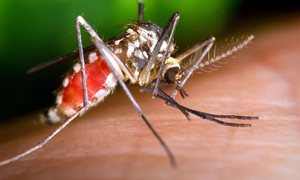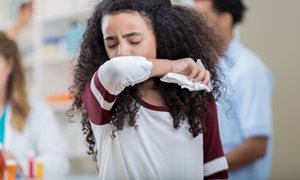
Dutch people under the age of 25 with colon cancer form a small group within colon cancer patients (0.1% of the total number of colon cancer patients). Genetic studies of these patients and their tumors show that they are a unique group. Richarda de Voer, Marjolijn Ligtenberg, theme Tumours of the digestive tract, and colleagues published an article in Clinical Gastroenterology and Hepatology and argue that this group should be treated independently.
The study, funded by the Gastrointestinal Society (MLDS), began in 2013 by collecting data on - eventually - all 139 cases of colorectal cancer among young adults under 25 in the Netherlands between 2000-2017. Richarda de Voer and Marjolijn Ligtenberg, screened all of these people for this rare condition.
Often a genetic predisposition
By analyzing the DNA of the patients, a "genetic predisposition" was found in 39 percent of the cases. This means that the patients have an inherited predisposition to the development of the cancer. This percentage is much higher than usual, as it is less than five percent. Researcher Dr. De Voer: "It is important to know whether there is a genetic predisposition, because with predisposition there is often a chance of recurrence. Through regular checks we can detect a recurring or new colon cancer earlier. In addition, family members can also be tested. If it turns out that they are at increased risk, we can follow them."
Looking for the best treatment
Because tumors contain genetic mutations that do not occur in other body cells, the researchers also examined the genetic material of the patients' tumors. This showed that tumor-specific mutations also occur in different proportions among this subgroup than in older patients with colon cancer. Some of these changes may affect the patient's treatment. Marjolijn Ligtenberg: "We expect that a significant proportion of these young patients may benefit from immunotherapy. We therefore advocate genetic research in young patients with colorectal cancer, so that the best treatment can be found for them."
-
Want to know more about these subjects? Click on the buttons below for more news.
More information
Pauline Dekhuijzen

wetenschaps- en persvoorlichter
Related news items

Grants for research on magnesium deficiency and malaria Vidis for Felix Hol and Jeroen de Baaij
1 July 2022 Radboudumc researchers Jeroen de Baaij and Felix Hol both receive an NWO Vidi grant for their research, respectively on magnesium deficiency in type 2 diabetes and on malaria. read more
Field research on malaria vaccine offers unexpected surprise
23 May 2022Field research on the effectiveness of a malaria vaccine, came up with unexpected results for an international group of researchers including Benjamin Mordmüller of Radboudumc. The vaccine evokes a broader response against malaria proteins than there are in the vaccine.
read more



